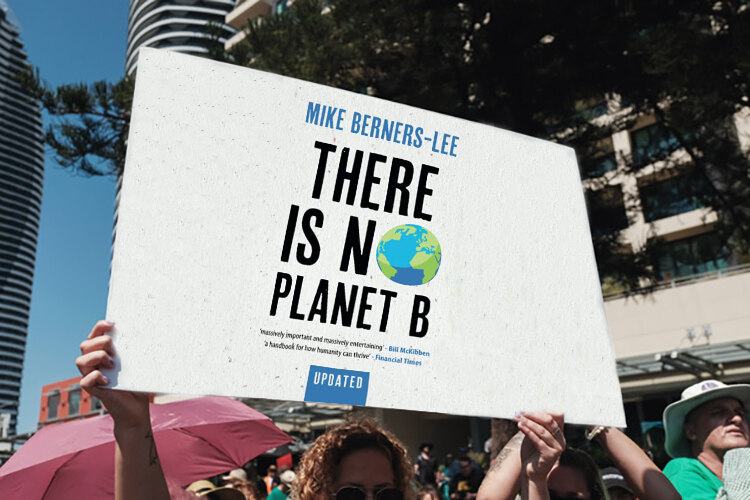
Mike Berners-Lee addresses fossil fuels, carbon footprints, urban transport and other daunting questions about protecting the planet, making this complicated subject feel a little more manageable in ‘There Is N0 Planet B’
Review by Chris Fitch
How bad are fossil fuels? What’s the carbon footprint of agriculture? How can we sort out urban transport? If only someone could answer these and even more daunting questions about protecting the planet, perhaps this complicated subject might feel a little more manageable. Thankfully, sustainability consultant Mike Berners-Lee has written a book doing exactly that.
From growing food to car travel, ocean acidification to carbon taxes, he tackles everything from the simplest to the most complex issues revolving around climate change and other anthropogenic environmental challenges with basic facts and straightforward language. Is nuclear nasty? Is local food best? Should I fly? Yes, sometimes, and it depends, says Berners-Lee. When the answer is ambiguous, he says so, instead of pushing the reader towards a neat and tidy answer where one doesn’t exist.
Food is certainly a sensible place to start. He repeatedly demonstrates how huge the emissions generated by what we choose to put in our mouths are (especially meat and dairy) something he argues are missing from debates about the climate. He is capable of explaining issues such as how misleading the ‘air miles’ metric can be, with nutrition derived from sun-drenched distant shores often requiring far less energy than equivalents grown in greenhouses closer to home (as long as they avoid air freight). Other major topics include the various alternative energy options to keep fossil fuels in the ground, the role of new technologies in changing ways of travel, and rules for running a sustainable business.
Even though this book serves as something of a ‘saving the planet for dummies’, there is plenty of information contained within to plug the gaps in the knowledge banks of even those of us who spend an above average amount of time researching these problems. The huge detrimental effect biofuels could have on the global food supply, the many thousands of miles that an e-bike can obtain from a single square metre of solar panels, and the depressing way ‘rebound effects’ can cancel out progress made in energy efficiency, are all key points I personally have a far enhanced understanding of than before I picked up the book.
In many ways There is No Planet B reads like a grand manifesto for a politician running for office (albeit a very liberal and unusually scientifically-literate politician). Questions about topics as diverse as prison reform, the welfare state, and the state of democracy might not immediately appear to be related to climate change. But when considered in context with Berners-Lee’s vision for a global society of more purpose and less unproductive work hours, it all plays its part in how he argues society needs to be totally reorganised in order to operate within the new dynamic of the Anthropocene. Certainly his thoughts about intrinsic versus extrinsic values, or the philosophical nature of ‘truth’, would be very unlikely to ever appear in scientific literature. It’s a declaration of the many complicated steps required to mitigate extreme climate change – with an emphasis on how interlinked these many steps are – that empathises how impossible it is to think about each issue in isolation.
The sad truth is that – with issues so convoluted as to require an entire book for him to merely skim over each one – its main achievement is simply underlining just how complicated the modern world is. Berners-Lee clearly illustrates how many external factors there are to consider, how many hundreds and thousands of plates we have to keep spinning, to solve just one problem without making others even worse. As he puts in his title, these are the ‘make or break years’, and with so many issues now competing for attention (not to mention interested parties keen to interfere with our perceptions, a topic he is hardly able to get into) the challenge is immense. Perhaps most charming is the number of times Berners-Lee drops his personal email into the text, with a comment along the lines of: ‘If you know the answer, please tell me. Then I can tell everyone else.’




